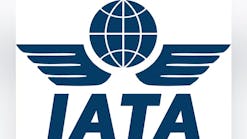Research Shows Use of SAF in U.S. Business Aviation Market is Set for Take-Off
Six out of ten (58 percent) senior U.S. business executives believe the use of sustainable aviation fuel (SAF) in the private aviation sector will increase significantly over the next five years. A further 32 percent believe there will be a slight increase in its use.
This is according to new research with senior executives of U.S. businesses with an annual revenue of over $500 million, which was commissioned by Airbus Corporate Jets (ACJ).
SAF is a biofuel that can reduce CO₂ emissions by up to 85 percent across the lifecycle. Key to its growing acceptance is to reduce its cost. Nearly nine out of ten (89 percent) senior U.S. executives interviewed believe this can be achieved over the next five years and expect to see an increase in investment in advanced technologies to process feedstocks more efficiently at greater scale, and also in the development of sustainable and scalable feedstock options, all of which is needed to grow the SAF market.
Also, to help increase the use of SAF there needs to be greater support from governments and other stakeholders through policy initiatives, providing a more stable long-term framework that will give investors greater confidence to make the big investment needed to grow the market. Half (50 percent) of the senior business executives interviewed expect a dramatic improvement in this area between now and 2025, and a further 35 percent say the situation will improve slightly.
ACJ’s research found that 86 percent of senior U.S. business executives believe SAF will help grow the business aviation market because it will provide greater control over the environmental impact of flights.
“The business aviation sector is acutely aware of the need to find ways to reduce the impact of flying on the environment,” said Sean McGeough, VP Commercial ACJ for North America. “Airbus is committed to pioneering the use of sustainable fuel, but also the latest technology to reduce the impact of our aircraft on the environment. For example, our new ACJ TwoTwenty business aircraft uses advanced materials and technology for lower fuel burn and maintenance costs. It has 50 percent lower emissions per square meter when compared to large business jets in general.”
ACJ offers a range of large business aircraft, the latest of which is the ACJ TwoTwenty. This launched in October 2020, creating a whole new market segment – "The Xtra Large Bizjet."
ACJ is working as part of the global Airbus family to optimize its environmental performance, reduce noise and create responsible solutions that support both its sustainability ambitions and customers’ goals.
As with all ACJ aircraft, the ACJ TwoTwenty is certified to fly with a 50 percent blend of Sustainable Aviation Fuel (SAF). The goal is to achieve 100 percent SAF certification by 2030.
More than 210 Airbus corporate jets are in service worldwide, flying on every continent, including Antarctica.

